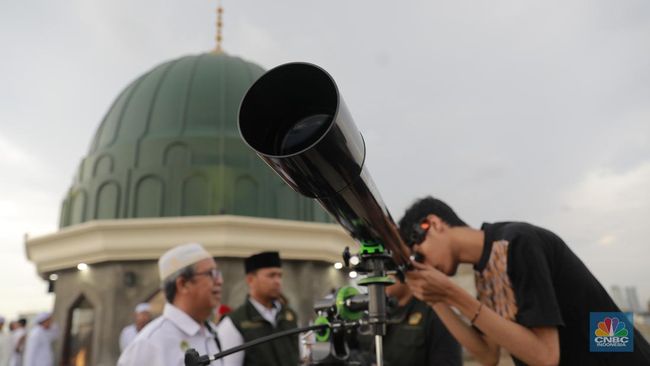On Guido Reichstadter’s 17th day without eating, he said he was feeling alright — moving a little slower, but alright.
Each day since September 2nd, Reichstadtler has appeared outside the San Francisco headquarters of AI startup Anthropic, standing from around 11AM to 5PM. His chalkboard sign states “Hunger Strike: Day 15,” though he actually stopped eating on August 31st. The sign calls for Anthropic to “stop the race to artificial general intelligence” or AGI: the concept of an AI system that equals or surpasses human cognitive abilities.
AGI is a favorite rallying cry of tech CEOs, with leaders at big companies and startups alike racing to achieve the subjective milestone first. To Reichstadler, it’s an existential risk these companies aren’t taking seriously. “Trying to build AGI — human-level, or beyond, systems, superintelligence — this is the goal of all these frontier companies,” he told The Verge. “And I think it’s insane. It’s risky. Incredibly risky. And I think it should stop now.” A hunger strike is the clearest way he sees to get AI leaders’ attention — and right now, he’s not the only one.
Reichstadter referenced a 2023 interview where Anthropic CEO Dario Amodei that he says exemplifies the AI industry’s recklessness. “My chance that something goes quite catastrophically wrong on the scale of human civilization might be somewhere between 10 and 25 percent,” Amodei said. Amodei and others have concluded AGI’s development is inevitable and say their goal is to simply be the most responsible custodians possible — something Reichstadtler calls “a myth” and “self-serving.”
In Reichstadter’s view, companies have a responsibility not to develop technology that will harm people on a large scale, and anyone who understands the risk bears some responsibility, too.
“That’s kind of what I’m trying to do, is fulfill my responsibility as just an ordinary citizen who has some respect for the lives and the wellbeing of my fellow citizens, my fellow countrymen,” he said. “I’ve got two kids, too.”
Anthropic did not immediately respond to a request for comment.
Every day, Reichstadter said he waves to the security guards at Anthropic’s office as he sets up, and he watches Anthropic employees avert their eyes as they walk past him. He said at least one employee has shared some similar fears of catastrophe, and he hopes to inspire AI company staffers to “have the courage to act as human beings and not as tools” of their company because they have a deeper responsibility since “they’re developing the most dangerous technology on Earth.”
His fears are shared by countless others in the AI safety world. It’s a splintered community, with myriad disagreements on the specific dangers AI poses over the long-term and how best to stop them — even the term “AI safety” is fraught. One thing most of them can agree on, though, is that its current path bodes ill for humanity.
Reichstadter said he first became aware of the potential for “human-level” AI during his college years about 25 years ago and that back then, that it seemed far off — but with the release of ChatGPT in 2022, he sat up and took notice. He says he’s especially been concerned with how he believes AI is playing a role in increasing authoritarianism in the U.S.
“I’m concerned about my society,” he said. “I’m concerned about my family, their future. I’m concerned about what’s happening with AI to affect them. I’m concerned that it is not being used ethically. And I’m also concerned that it poses realistic grounds to believe that there’s catastrophic risks and even existential risks associated with it.”
In recent months, Reichstadter has tried increasingly public methods of getting tech leaders’ attention to an issue he believes is vital. He’s worked in the past with a group called “Stop AI,” which seeks to permanently ban superintelligent AI systems “to prevent human extinction, mass job loss, and many other problems.” In February, he and other members helped chain shut the doors to OpenAI’s offices in San Francisco, with a few of them, including Reichstadter, being arrested for the obstruction.
Reichstadter delivered a handwritten letter to Amodei via the Anthropic security desk on September 2nd, and a few days later, he posted it online. The letter requests that Amodei stop trying to develop a technology he can’t control — and do everything in his power to stop the AI race globally — and that if he isn’t willing to do so, to tell him why not. In the letter, Reichstadter wrote, “For the sake of my children and with the urgency and gravity of our situation in my heart I have begun a hunger strike outside the Anthropic offices … while I await your response.”
“I hope that he has the basic decency to answer that request,” Reichstadter said. “I don’t think any of them have been really challenged personally. It’s one thing to anonymously, abstractly, consider that the work you’re doing might end up killing a lot of people. It’s another to have one of your potential future victims face-to-face and explain [why] to them as a human being.”
Soon after Reichstadter started his peaceful protest, two others inspired by him began a similar protest in London, maintaining a presence outside Google DeepMind’s office. And one joined him in India, fasting on livestream.
Michael Trazzi participated in the London hunger strike for seven days before choosing to stop due to two near-fainting episodes and a doctor consultation, but he is still supporting the other participant, Denys Sheremet, who is on day 10. Trazzi and Reichstadter share similar fears about the future of humanity under AI’s continued advancement, though they’re reluctant to define themselves as part of a specific community or group.
Trazzi said he’s been thinking about the risks of AI since 2017. He wrote a letter to DeepMind CEO Demis Hassabis and posted it publicly, as well as passed it along through an intermediary.
In the letter, Trazzi asked that Hassabis “take a first step today towards coordinating a future halt on the development of superintelligence, by publicly stating that DeepMind would agree to halt the development of frontier AI models if all the other major AI companies in the West and China were to do the same. Once all major companies have agreed to a pause, governments could organise an international agreement to enforce it.”
Trazzi told The Verge, “If it was not for AI being very dangerous, I don’t think I would be … super pro-regulation, but I guess … there are some things in the world that, by default, the incentives are going [in] the wrong direction. I think for AI, we do need regulation.”
Amanda Carl Pratt, Google DeepMind’s director of communications, said in a statement, “AI is a rapidly evolving space and there will be different views on this technology. We believe in the potential of AI to advance science and improve billions of people’s lives. Safety, security and responsible governance are and have always been top priorities as we build a future where people benefit from our technology while being protected from risk.”
In a post on X, Trazzi wrote that the hunger strike has sparked a lot of discussion with tech workers, claiming that one Meta employee asked him, “Why only Google guys? We do cool work too. We’re also in the race.”
He also wrote in the post that one DeepMind employee said AI companies likely wouldn’t release models that could cause catastrophic harms because of the opportunity cost, while another, he said, “admitted he believed extinction from AI was more likely than not, but chose to work for DeepMind because it was still one of the most safety-conscious companies.”
Neither Reichstadter nor Trazzi have received a response yet from their letters to Hassabis and Amodei. (Google also declined to answer a question from The Verge about why Hassabis has not responded to the letter.) They have faith, though, that their actions result in an acknowledgement, a meeting, or ideally, a commitment from the CEOs to change their trajectories.
To Reichstadter, “We are in an uncontrolled, global race to disaster,” he said. “If there is a way out, it’s going to rely on people being willing to tell the truth and and say, ‘We’re not in control.’ Ask for help.”
Follow topics and authors from this story to see more like this in your personalized homepage feed and to receive email updates.

 4 hours ago
2
4 hours ago
2















































